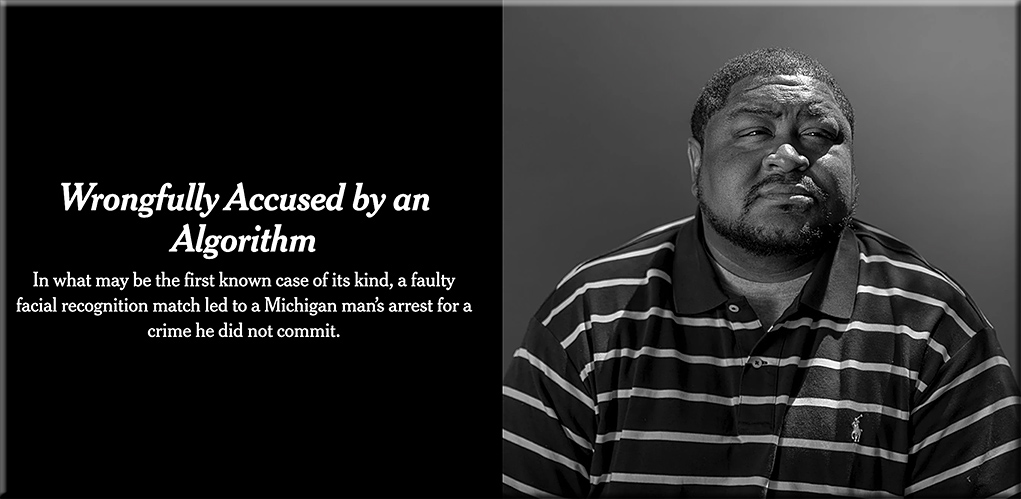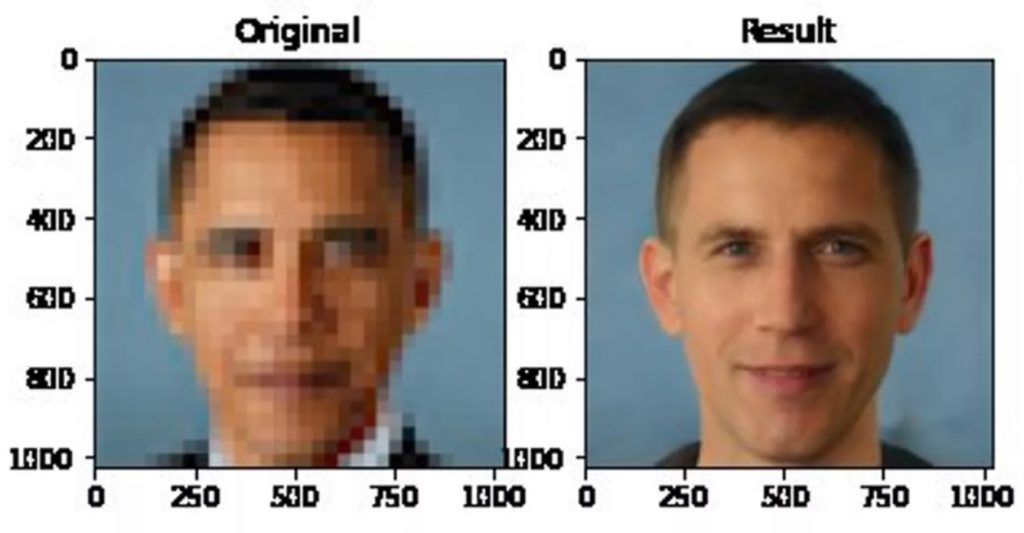Wrongfully accused by an algorithm — from nytimes.com by Kashmir Hill
Excerpt:
On a Thursday afternoon in January, Robert Julian-Borchak Williams was in his office at an automotive supply company when he got a call from the Detroit Police Department telling him to come to the station to be arrested. He thought at first that it was a prank.
An hour later, when he pulled into his driveway in a quiet subdivision in Farmington Hills, Mich., a police car pulled up behind, blocking him in. Two officers got out and handcuffed Mr. Williams on his front lawn, in front of his wife and two young daughters, who were distraught. The police wouldn’t say why he was being arrested, only showing him a piece of paper with his photo and the words “felony warrant” and “larceny.”
His wife, Melissa, asked where he was being taken. “Google it,” she recalls an officer replying.
…
“Is this you?” asked the detective.
The second piece of paper was a close-up. The photo was blurry, but it was clearly not Mr. Williams. He picked up the image and held it next to his face.
“No, this is not me,” Mr. Williams said. “You think all black men look alike?”
Also relevant/see:
- Boston Lawmakers Vote To Ban Use Of Facial Recognition Technology By The City — from npr.org by Ally Jarmanning
- ‘Coded bias’ connects A.I. to racism in a way you have never seen — inverse.com by Mike Brown
- It’s time for D.C. to regulate police surveillance technology — an opinion piece from washingtonpost.com by Andrew Guthrie Ferguson
- What a machine learning tool that turns Obama white can (and can’t) tell us about AI bias — from theverge.com by James Vincent
A striking image that only hints at a much bigger problem










